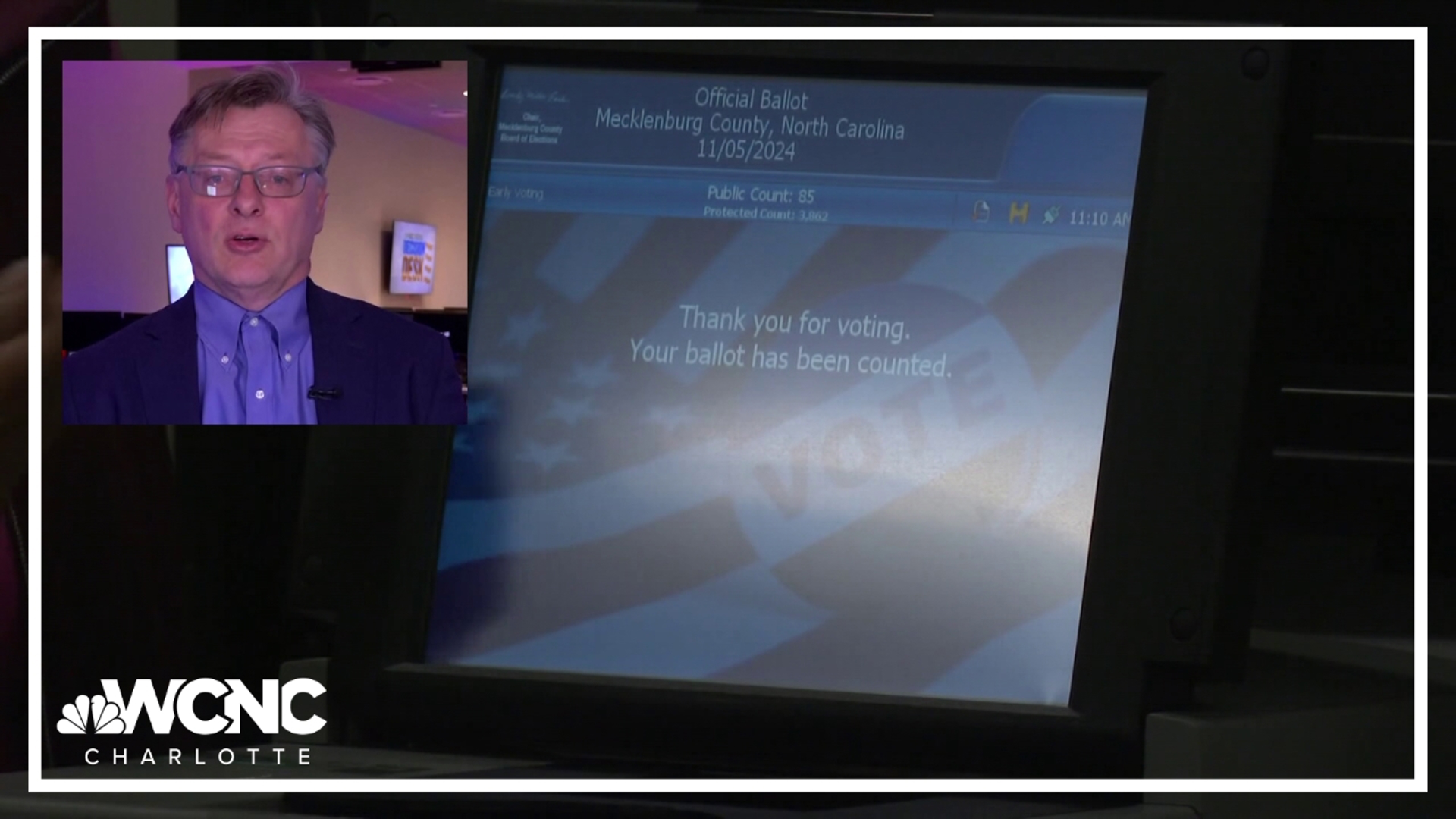CHARLOTTE, N.C. — With early voting wrapping up in the Carolinas and Election Day drawing near, it's not hard for us to be reminded of how the 2020 election was called four days after the polls closed. A winner wasn't declared the night the ballots were counted. That begs the question: could we see that happen this cycle?
"It sort of depends," said John Lipinski, director of elections for NBC News. "I think the earliest we could know would be Wednesday morning or Wednesday during the day."
Lipinski said it's because battleground states likely won't be ready to call until then.
"I think that the states like Pennsylvania, Michigan and Wisconsin are possibly callable Wednesday morning or [during the] day," he said. "Most of those states will count up most of their vote, also in places like Georgia and North Carolina. But if the race is tied, it could easily go several days, if not a week."
As for why some states are called sooner, Lipinski laid out two scenarios.
"In one scenario, in races that are sort of blowout races where there's a lot of spread, we actually can use the exit poll to project those races," he said. "In other states like Florida and Texas, those are states that actually have split poll closes. What that means is that part of the state closes earlier and then part of the state closes later."
Another factor: how state laws factor into ballot counting.
"Some states are extremely good at quickly counting the vote and efficiently counting it," Lipinski said. "States like North Carolina and Georgia, we might have almost 99% of the vote by maybe midnight or one o'clock in the morning."
But what about other states?
"On the flip side, we have some states that take a long time to actually count the vote," he said. "Those are states oftentimes that have a lot of early voting, so a place like Arizona or Nevada -- those are states that I would be very surprised if we could project those races even on Wednesday. It probably would take a few days to call them because of the way they process their votes."
While early voting data will help paint part of the picture, Lipinski notes Election Day numbers are still a key factor.
"We'll have a good sense of who's ahead with the early vote, but then the question is, is whoever is behind, will they be able to catch with that or with that election day vote? You really need to put the two pieces together," he said.

